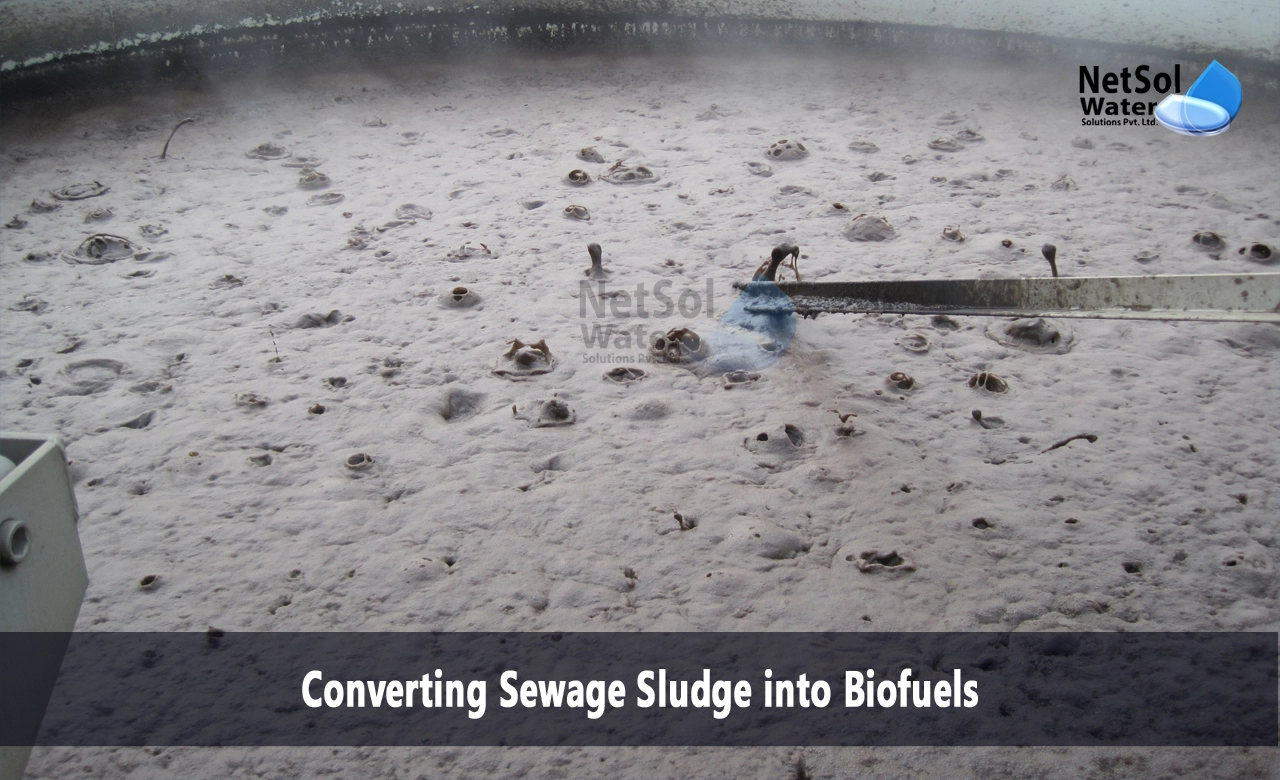How to Convert Sewage Sludge into Biofuels?
Sewage sludge refers to the residual, semi-solid material left over from wastewater treatment processes. Typically, sewage sludge has been disposed of in landfills, incinerated, or used as fertilizer. However, with increasing environmental concerns over these disposal methods, there is interest in converting sewage sludge into usable biofuels through various thermochemical and biochemical conversion processes. Sewage sludge is an attractive potential feedstock for biofuels because it is abundant, cheap, and rich in organic matter, with significant energy potential. Converting sewage sludge into biofuels could also decrease dependency on fossil fuels and reduce waste. We will examines the feasibility and potential of producing biofuels from sewage sludge.
Characteristics of Sewage Sludge
The feasibility of converting sewage sludge into biofuels largely depends on its composition and characteristics. Sewage sludge contains high moisture content of up to 80%, requiring drying before conversion. It also has high inorganic ash content from grit and metals. The organic fraction contains lipids, proteins, carbohydrates, and other compounds rich in carbon and hydrogen. The exact proportions vary based on waste water source. The biological oxygen demand and chemical oxygen demand, indicating biodegradability and energy potential, also fluctuate. Pre-treatment processes like drying, dewatering, and sterilization are needed to optimize sewage sludge for biofuel conversion. Overall, while variable and requiring processing, sewage sludge provides necessary precursors for high-energy density biofuels due to its organic matter.
Thermochemical Conversion Methods
Thermochemical technologies use heat and chemical reactions to break down biomass like sewage sludge into bio-oil and gas under oxygen-absent environments. Pyrolysis involves heating sludge from 450°C to 800°C to produce condensable and non-condensable gases and biochar. Additional cracking and reforming can optimize fuel properties. Gasification uses temperatures over 700°C and some oxygen to convert sludge to syngas, composed of hydrogen and carbon monoxide. The syngas can then be catalytically synthesized into fuels like methanol. Hydrothermal liquefaction uses moderate temperatures around 300°C with high pressures to convert high-moisture sludge directly into biocrude oil. These methods allow mixed and variable feedstocks like sewage sludge to be efficiently deconstructed into intermediate biofuels or synfuels with further refining.
Biochemical Conversion Methods
Biochemical technologies use microorganisms like bacteria, yeasts, and algae to convert biomass like sewage sludge into biofuels through fermentation, anaerobic digestion (AD), and other biological processes. AD uses bacteria under oxygen-absent conditions to break down and metabolize sludge organics into biogas containingroughly 60% methane and 40% carbon dioxide. The methane can be further enriched into renewable natural gas or transportation fuels. Fermentation uses microorganisms like yeast to metabolize sludge organics, often pretreated and hydrolyzed, into bioalcohols like ethanol and butanol. Technologies are also being developed to grow oleaginous algae on sewage sludge as feedstock, which can be harvested to yield oils convertible into biodiesel or jet fuel. These biochemical methods provide versatile biofuel outputs primarily determined by microbial agents.
Conclusion
With rising waste volumes and increasing interest in waste-to-energy approaches, sewage sludge presents an opportunity to develop renewable biofuels and reduce environmental impacts from both waste and fuels. Sewage sludge has sufficient carbon, hydrogen, and energy content needed for biofuel production. Thermochemical processes like pyrolysis and biochemical methods like AD can effectively convert sewage sludge into intermediate syngas, bio-oil, and gaseous fuels. However, sewage sludge has variable composition and requires pre-treatment to optimize conversion. More research is needed to develop tailored pre-treatment methods and conversion technologies that can handle diverse sludge types while maximizing energy efficiency and biofuel yields. Other barriers like costs, logistics, and policy also must be addressed. But given the volumes available and potential for high-value product output, sewage sludge is a promising potential feedstock for renewable, advanced biofuel production that could incentivize more sustainable waste management while reducing fossil fuel dependence.
Netsol Water is Greater Noida-based leading water & wastewater treatment plant manufacturer. We are industry's most demanding company based on client review and work quality. We are known as best commercial RO plant manufacturers, industrial RO plant manufacturer, sewage treatment plant manufacturer, Water Softener Plant Manufacturers and effluent treatment plant manufacturers. Apart from this 24x7 customer support is our USP. Call on +91-9650608473, or write us at enquiry@netsolwater.com for any support, inquiry or product-purchase related query.



